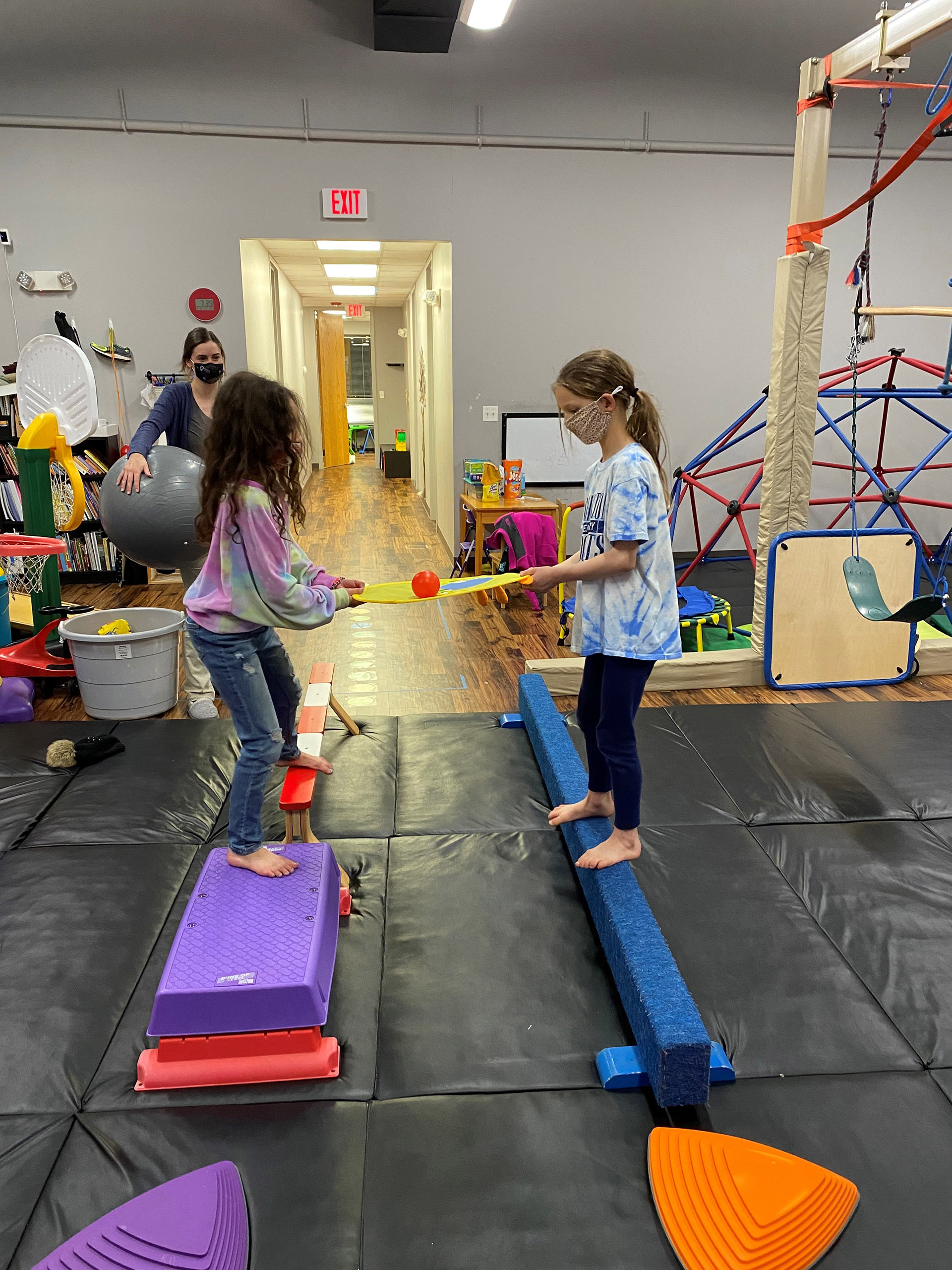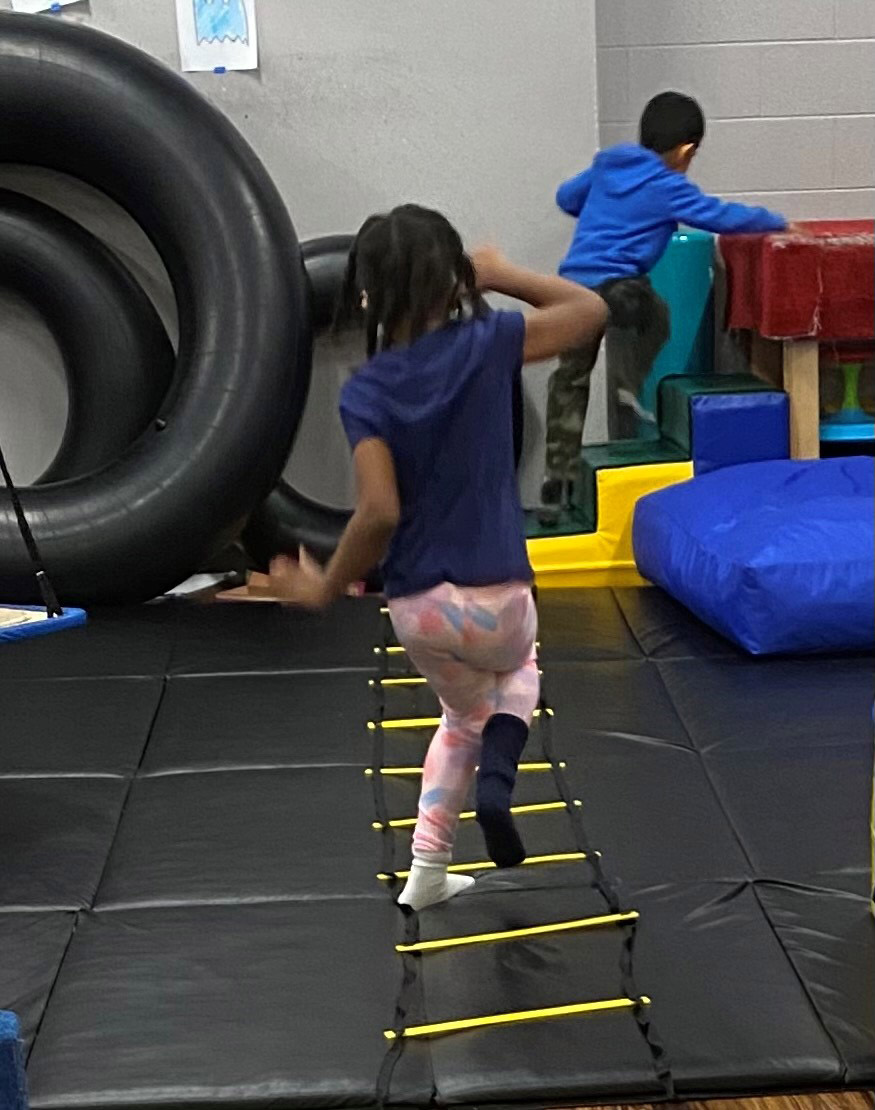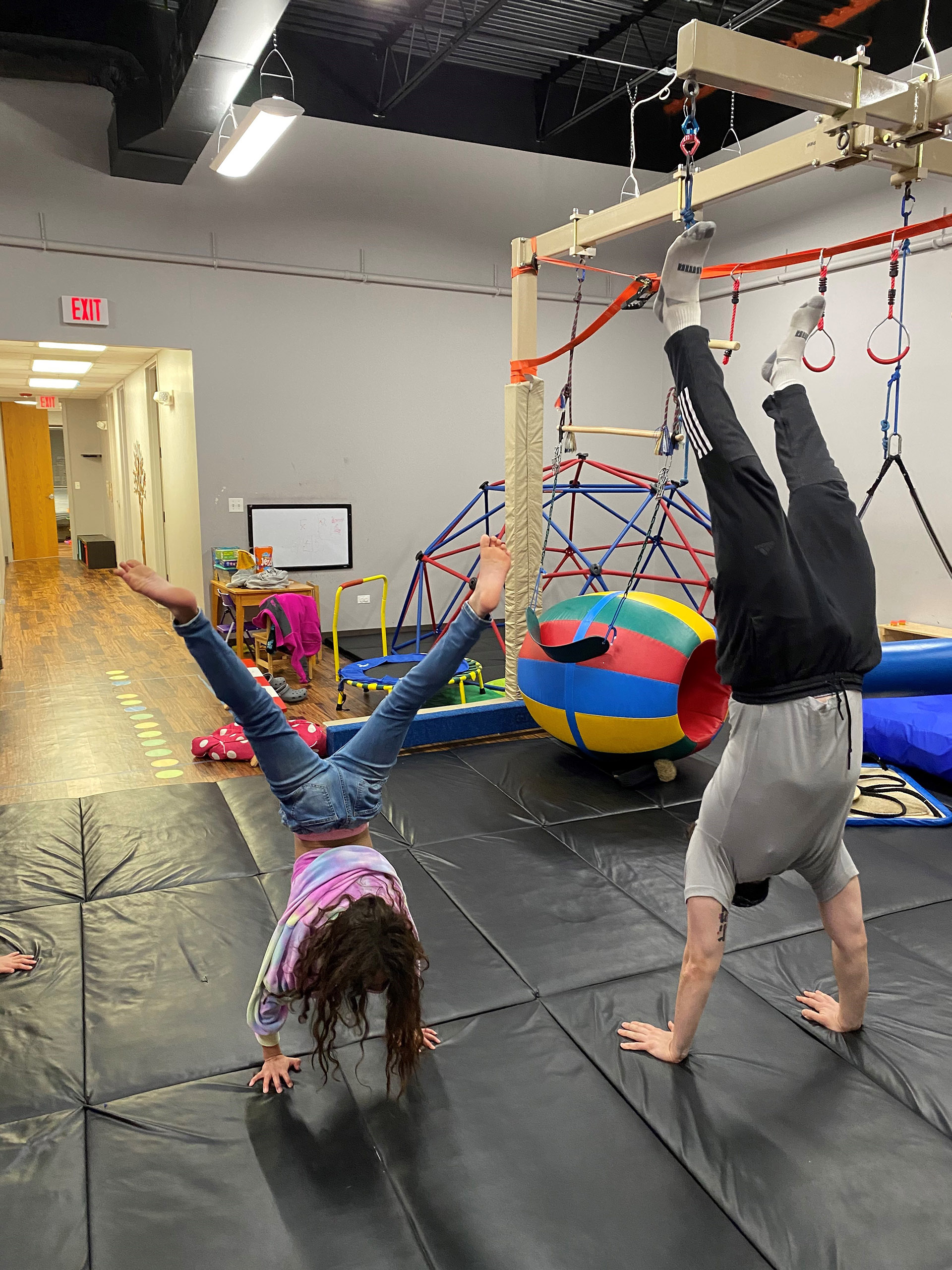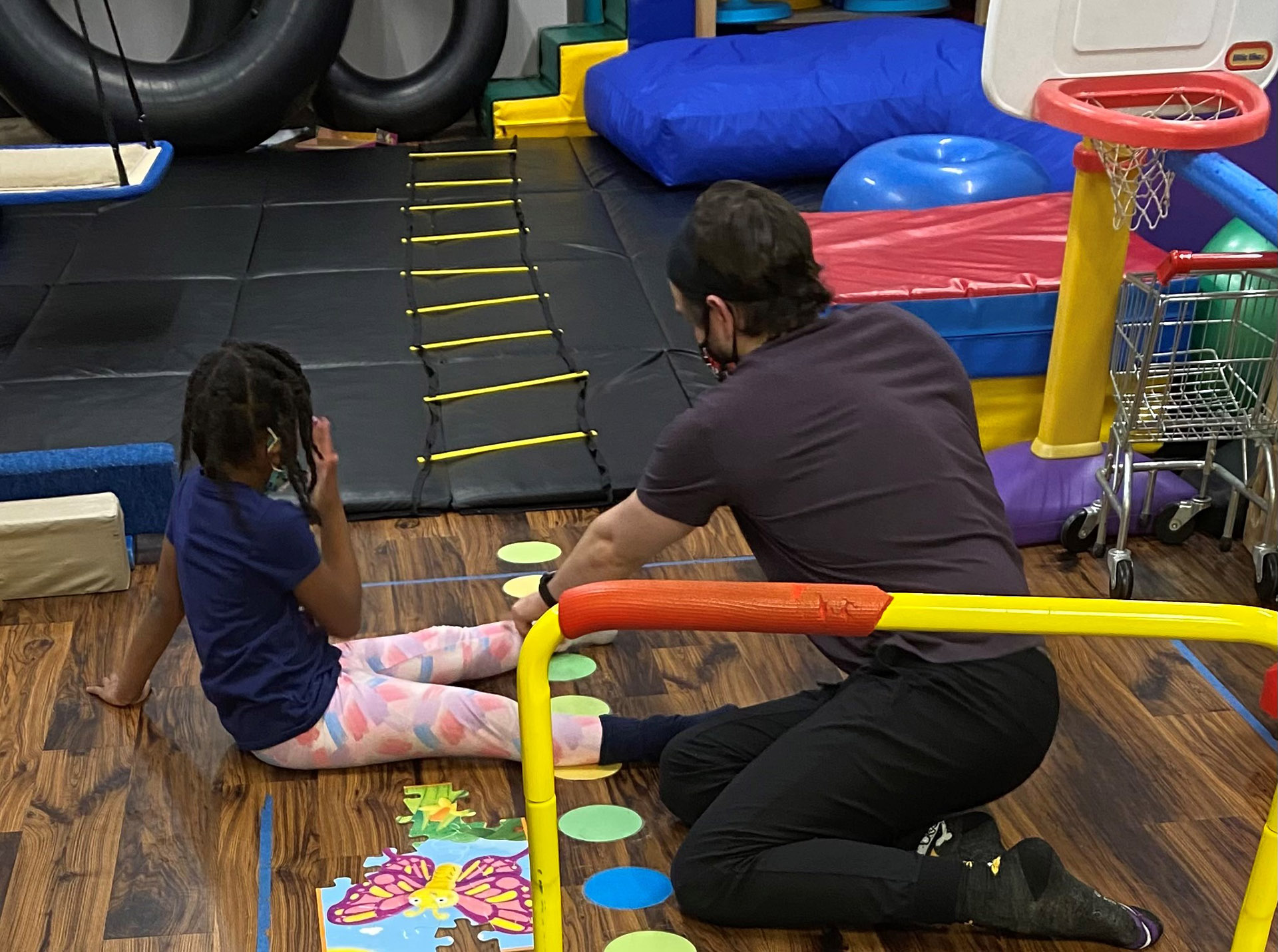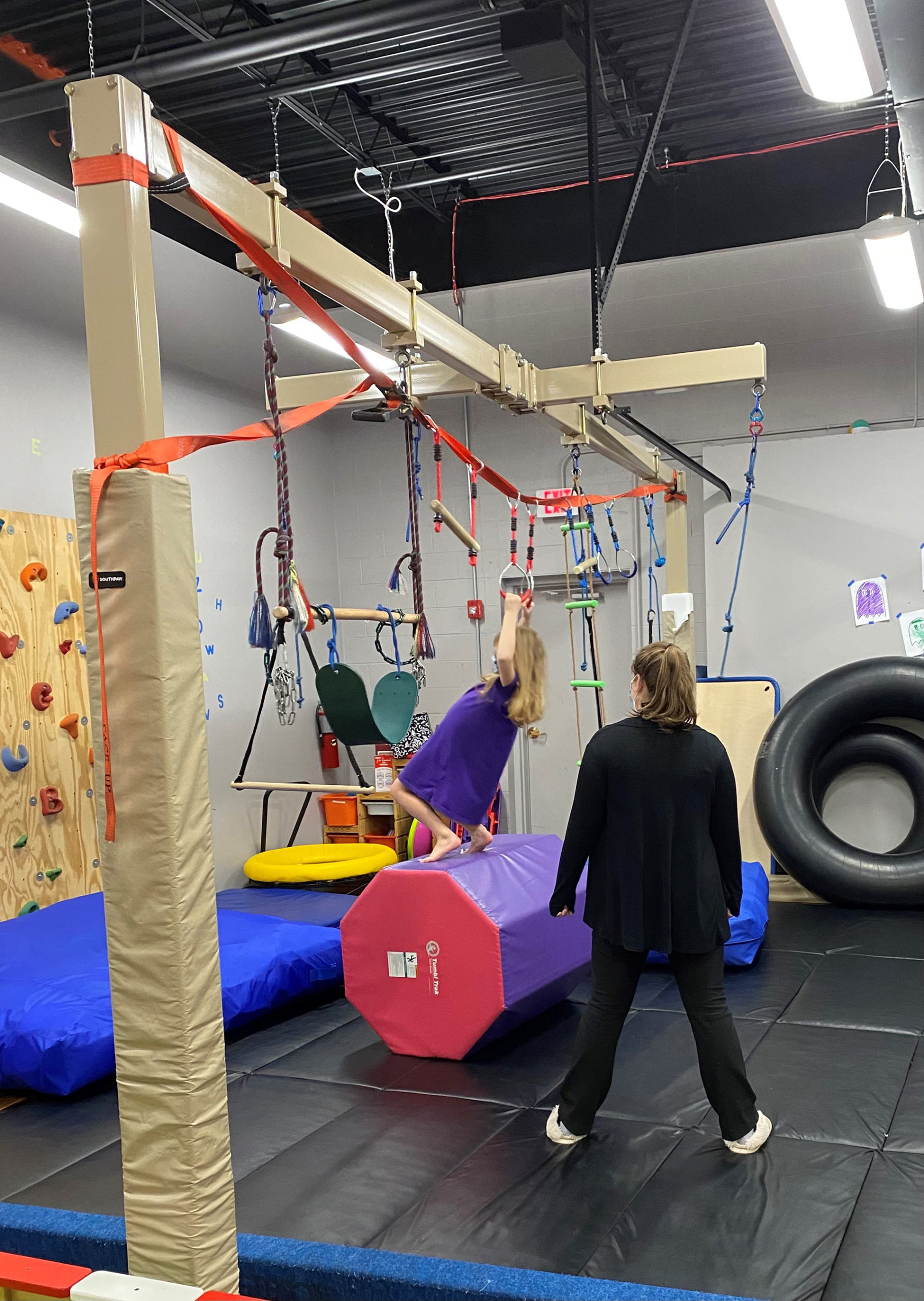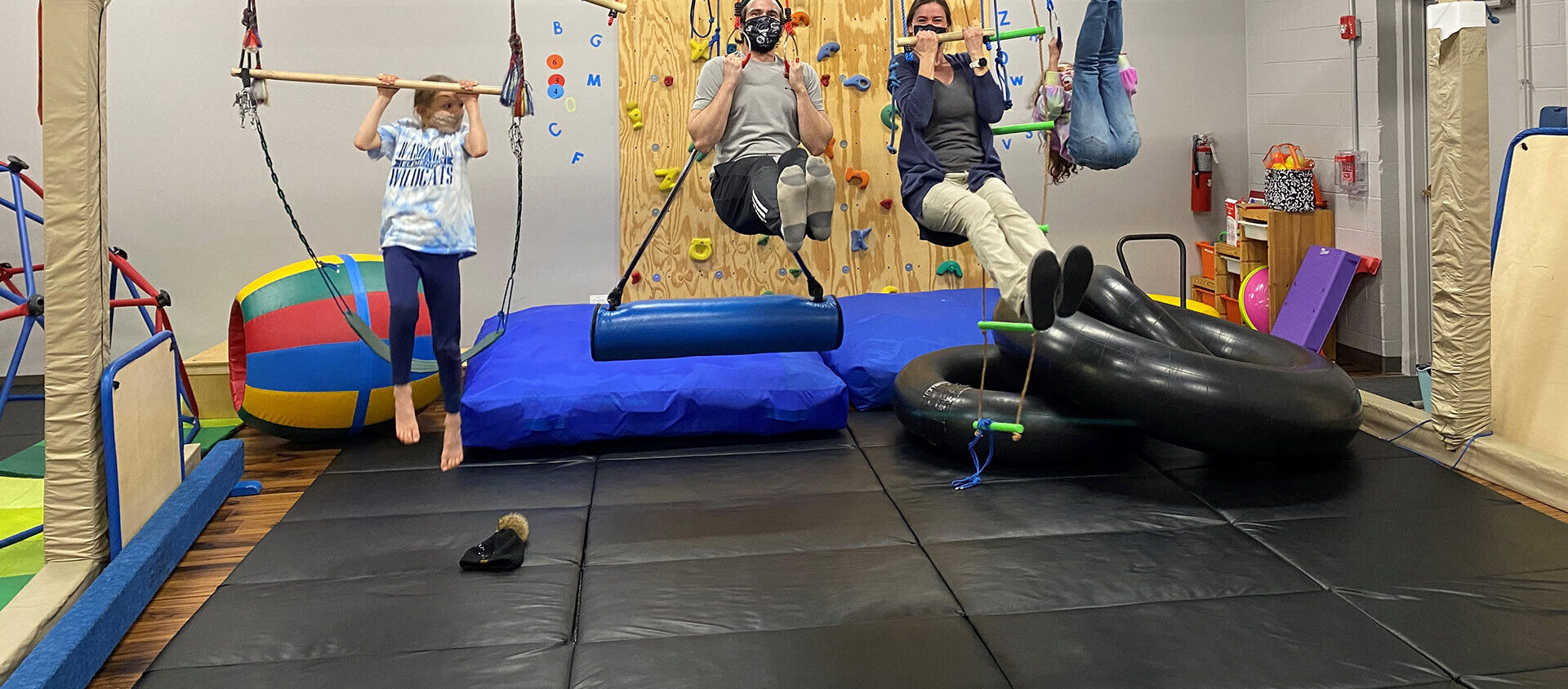Physical Therapy
Physical Therapy
Pediatric Physical Therapy utilizes a play-based approach to help improve your child’s gross motor abilities in order to navigate and participate in all arenas of life. Physical therapy (PT) can help maximize your child’s participation and functioning in daily and recreational activities as well as promote health and wellness. In general, PT can help improve mobility, posture, balance/coordination, strength/endurance, range of motion, motor planning and gait. As children get older, PT can also work on task/sport specific activities and address any limitations due to pain
At Step Forward Therapy, our Physical Therapy (PT) team is made up of highly-skilled and compassionate therapists who utilize best-practice evidence to create an individualized therapy plan for each child and family. PT focuses on body function (strength, motion, etc.), movement and motor development to identify limitations in a child’s ability to participate in everyday activities. Physical Therapy can benefit any child with a movement problem stemming from injury, disease, illness, or congenital disability. Our physical therapists are specially trained in the areas of milestone achievement, gait mechanics, postural abnormalities, gross motor development, manual therapy techniques, tone management, strength training, postural control, and balance/coordination training. PT’s collaborate with our interdisciplinary team at Step Forward Therapy as well as other medical and educational specialists.
Step Forward Therapy’s Rolling Meadows Occupational
- Assistive device training
- Atypical movement patterns
- Balance & coordination
- Daily care activities & routines
- Developmental milestones
- Equipment design, fabrication, & fitting
- Gait training
- Gross motor skills
- Health & wellness
- Muscle tone management
- Motor planning & learning
- Orthotic & prosthetic management
- Pain management
- Postural Abnormalities
- Postural control & positioning
- Range of motion
- Skeletal/Postural abnormalities
- Sports injuries
- Strength & endurance training
- Autism
- Ataxia or other gait impairment
- Brachial Plexus injuries
- Cerebral Palsy
- Chromosomal Abnormalities
- Down Syndrome
- Genetic Disorders
- Gross Motor Delay
- Idiopathic toe walking
- Hypotonia or hypertonia
- Muscular dystrophy
- Orthopedic injuries
- Plagiocephaly (and or Brachycephaly)
- Post-surgical rehabilitation
- Prematurity
- Scoliosis
- Seizure disorder
- Spina Bifida
- Spinal Cord Injury
- Sports injury
- Stroke
- Torticollis
Evaluations
We will provide an evaluation of your child including; gross motor, orthopedic, neuro-muscular, congenital, skeletal, developmental conditions, as well as acute or sports injuries
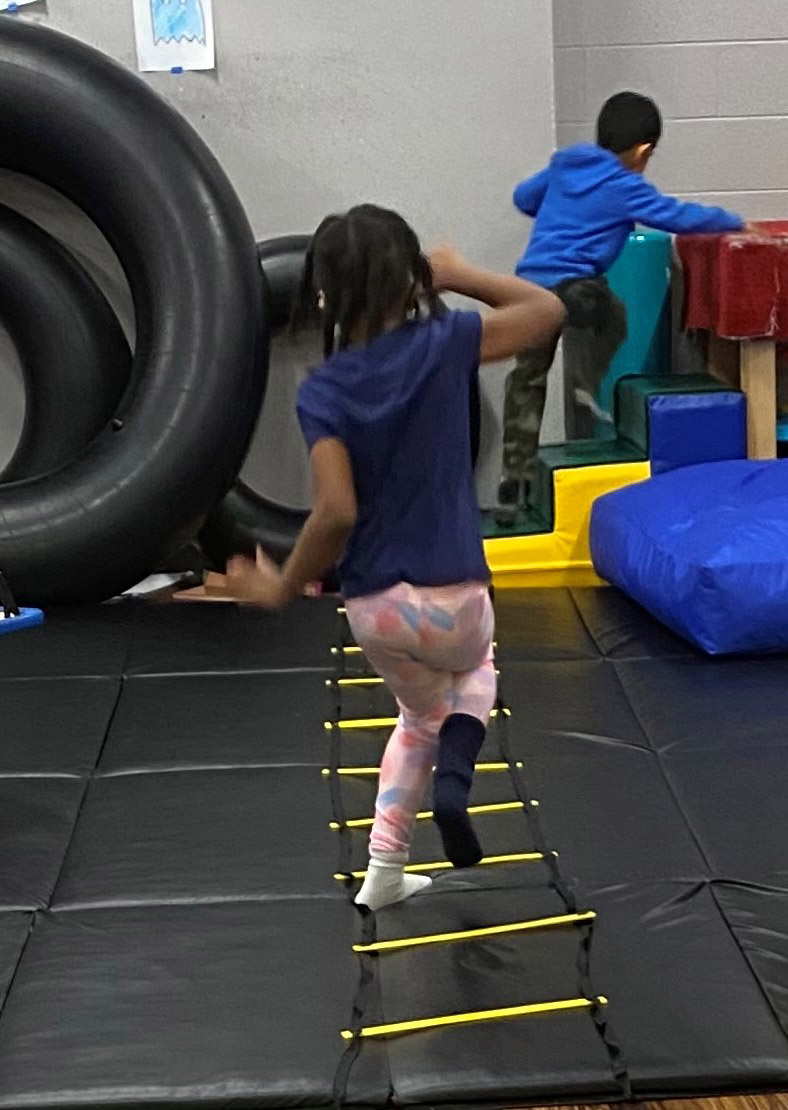
Consultation With School Personnel
At Step Forward Therapy, our therapists have background knowledge and experience in working with IEPs and 504 plans. We can consult with you and your school to make sure your child is getting all the services they need to be successful within the school environment.
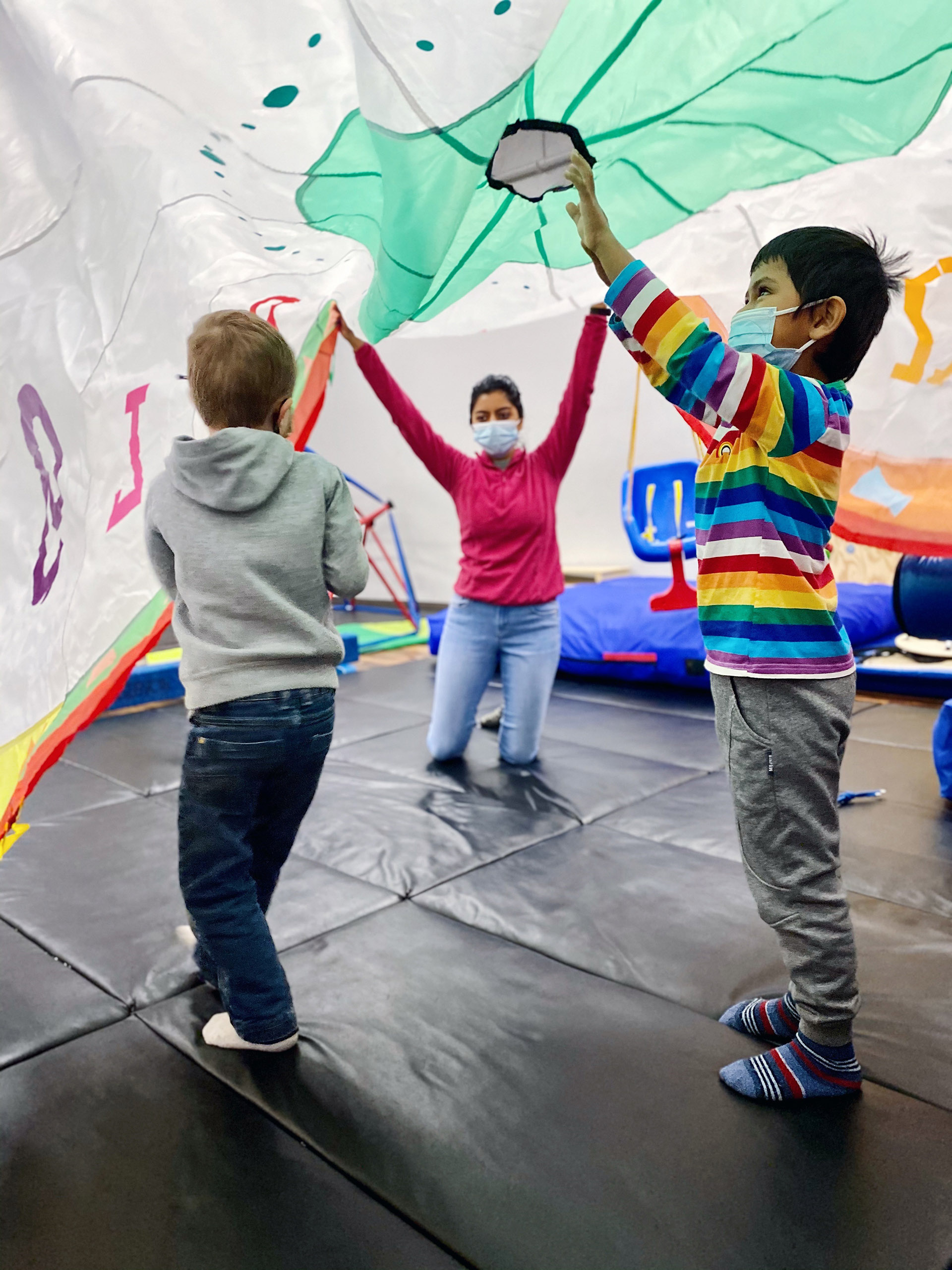

Consultation With School Personnel
At Step Forward Therapy, our therapists have background knowledge and experience in working with IEPs and 504 plans. We can consult with you and your school to make sure your child is getting all the services they need to be successful within the school environment.
Developmental and Orthopedic Conditions
At Step Forward Therapy, we treat both developmental/neurologic conditions and orthopedic conditions/sports injuries. Our therapists are specially trained to work with children of all ages with any movement impairments regardless of the origin.

Schedule An Appointment
Areas our Occupational Therapy can help, but not limited to:
A child who has delays in their gross motor skills
A child who falls more often than expected
A child who is having trouble with skills in activities of daily living like feeding and dressing
A child who has trouble participating in gym class
A child that has difficulty navigating playground equipment
A child that walks “Pidgeon-toed” (toes pointing in) or “knock-kneed” (knees touching while walking)
Babies that develop flat spots on their heads

